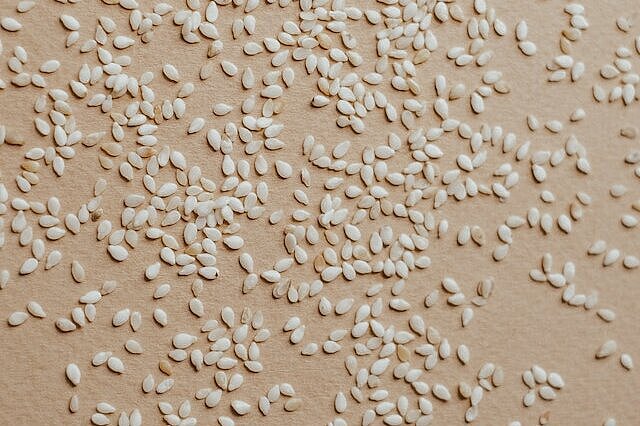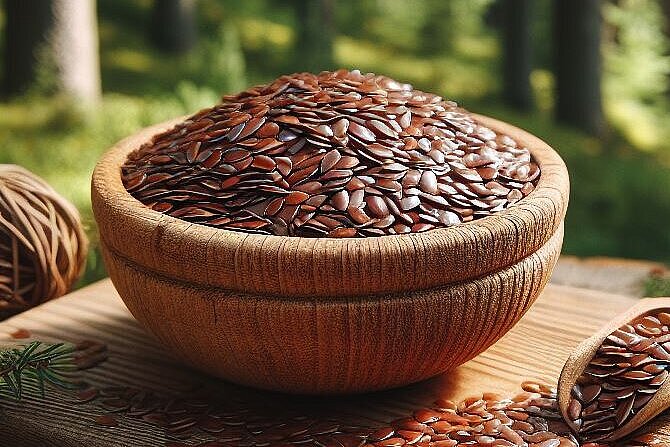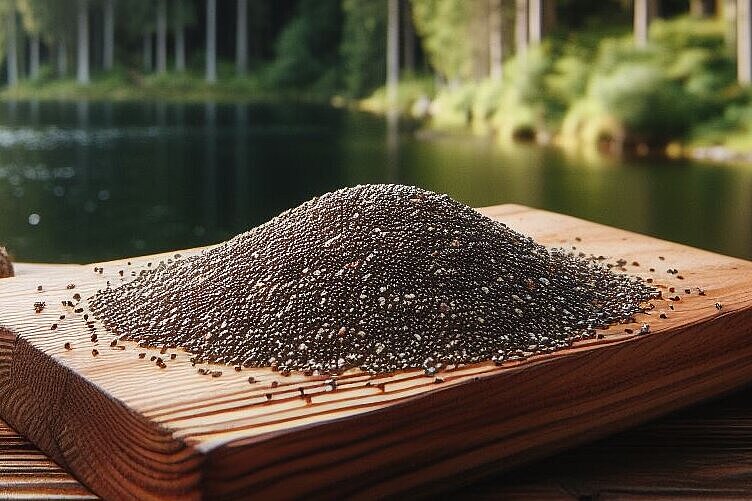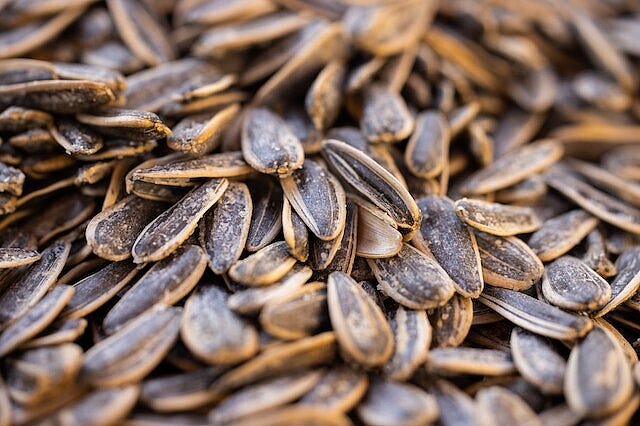Poppy seed

Poppy seed sprinkles on bread rolls or in baked goods - a common and appreciated ingredient for us humans that gives our dishes a nutty note and an appealing look. But what about poppy seeds in the diet of our four-legged friends? This article sheds light on poppy seeds in the context of dog nutrition by taking a close look at their properties, possible benefits and the associated risks in order to draw a clear picture of their suitability for dogs.
What is a poppy?
A brief botanical overview
Poppy refers to the seeds of various species of the genus Papaver, with the opium poppy(Papaver somniferum) being the best known. In addition to its use in cooking, the opium poppy is also the source of opium and thus of a number of alkaloids such as morphine, codeine and thebaine, which are used in medicine. Poppy seeds themselves only contain very small amounts of these alkaloids, which are generally considered safe for human consumption.
Poppy seeds and dogs: a risk analysis
Potential hazards
- Toxicity: Although poppy seeds are considered safe for humans at levels commonly found in food, the risk of toxicity is higher in dogs. The alkaloids, even in trace amounts, can cause symptoms of poisoning in dogs, especially if large quantities are consumed.
- Symptoms of poppy seed poisoning: Symptoms of poppy seed poisoning in dogs include lethargy, breathing problems, incoordination, constipation and even severe cases of coma or death. Sensitivity can vary depending on the dog, so even small amounts can be problematic.
Are there any benefits?
- Nutrient content: Poppy seeds are rich in nutrients, including calcium, phosphorus, iron and zinc, as well as essential fatty acids, which can contribute to a balanced diet. These nutrients are also important for dogs, but there are safer sources to meet these needs without the risks of poppy seed poisoning.
Recommendations for dog owners
Given the potential dangers poppy seeds pose to dogs, it is advisable to keep them out of your dog's diet completely. This includes both the direct feeding of poppy seeds and foods containing poppy seeds. If you suspect that your dog has ingested poppy seeds, especially in large quantities, seek veterinary help immediately.
Safe is safe
While poppy seeds can be a nutritious and tasty ingredient for us humans, the risks of feeding them to dogs clearly outweigh the benefits. The potential toxicity, even in small amounts, makes poppy seeds an ingredient that has no place in a dog's diet. For the health and well-being of your dog, it is crucial to use safe alternatives and keep poppy seeds and foods containing poppy seeds out of reach of your four-legged friend.
If you notice any signs of hypersensitivity or poisoning in your dog, you should see your vet immediately. We are not a substitute for a vet, but we try to be as accurate as possible. Every dog reacts differently and we recommend you get a second opinion or consult your vet if in doubt.
Stay healthy and take good care of your four-legged friend!😊
Similar to Poppy seed
Sesame is a plant from the sesame family, which is primarily known for its oily seeds. The seeds are small, oval and have a brown, black or white color. They have a nutty flavor and are often used...
Linseeds are the seeds of the flax plant (Linum usitatissimum), which is primarily known for its fibers. The fibers are processed into linen fabric, which is used for clothing or bedding. The seeds...
Chia seeds have many positive properties for your dog's health. Here are some of them: They aid digestion by promoting intestinal flora and preventing constipation. They also bind water and swell...
Sunflower seeds contain many valuable nutrients that are important for your dog's health. These include: Protein: Sunflower seeds are a good plant-based source of protein, which promotes muscle...



